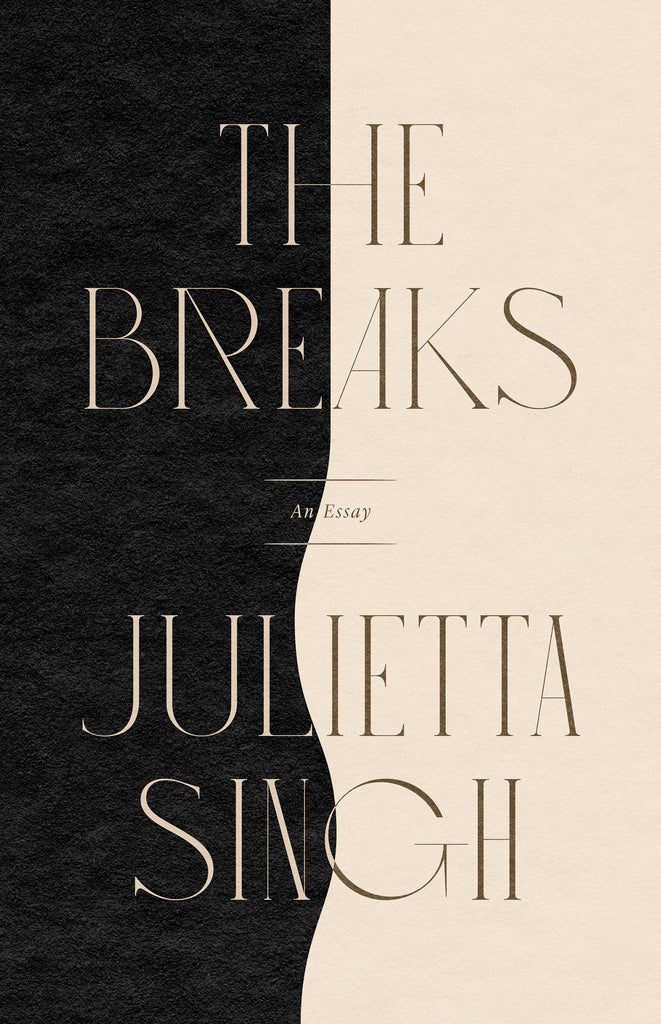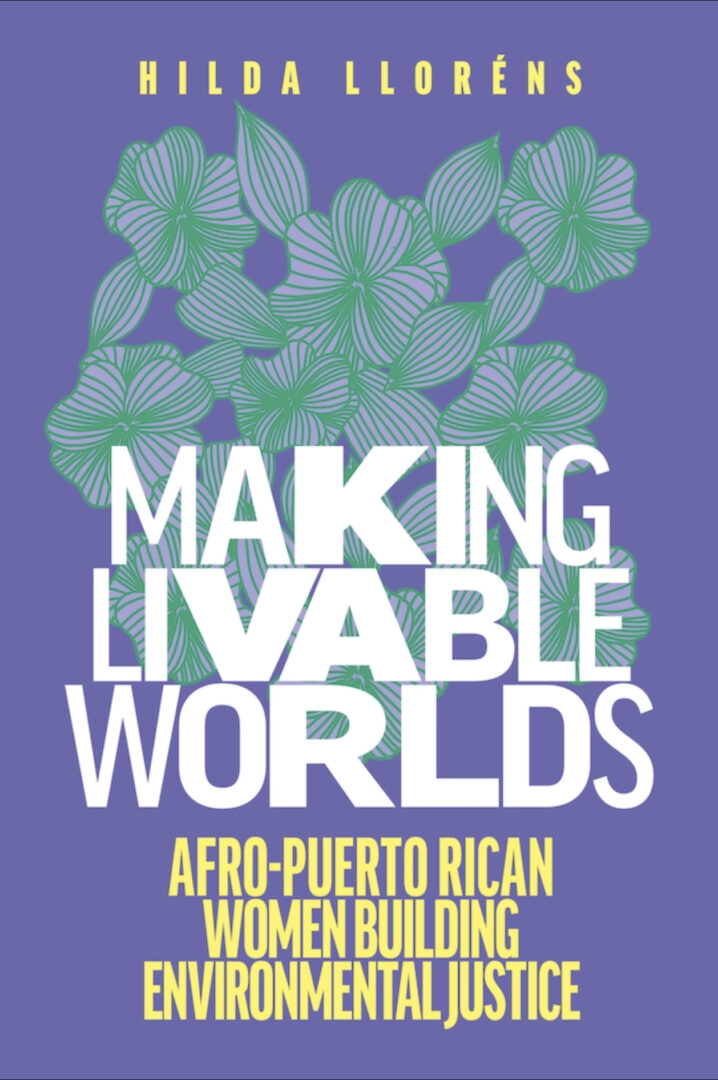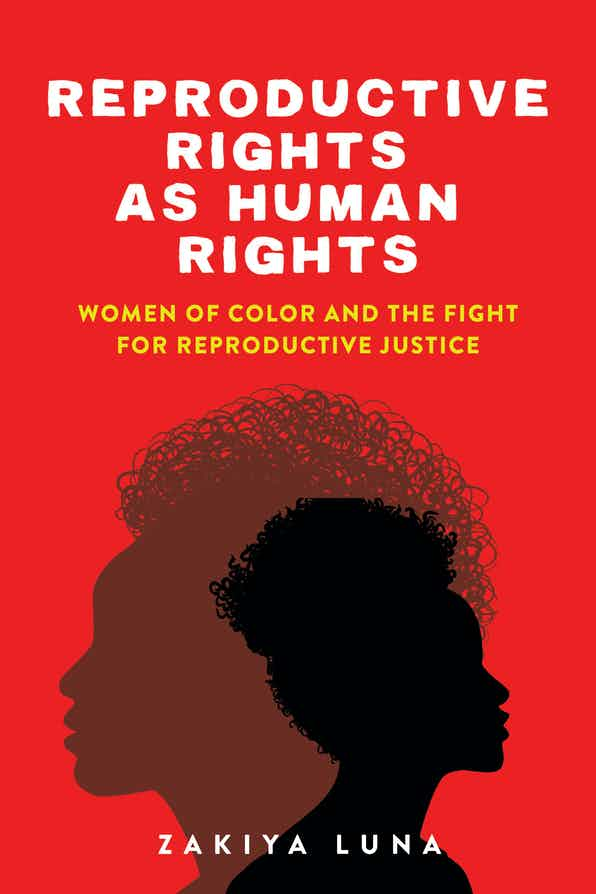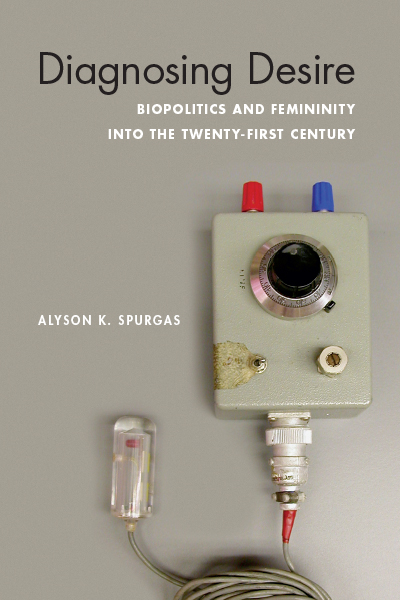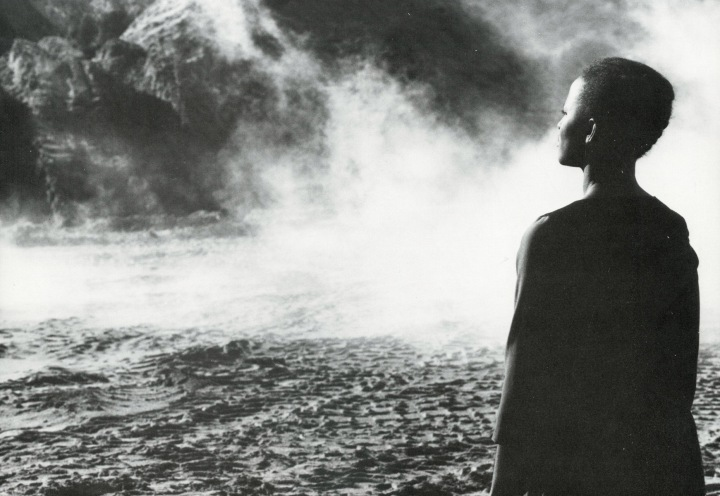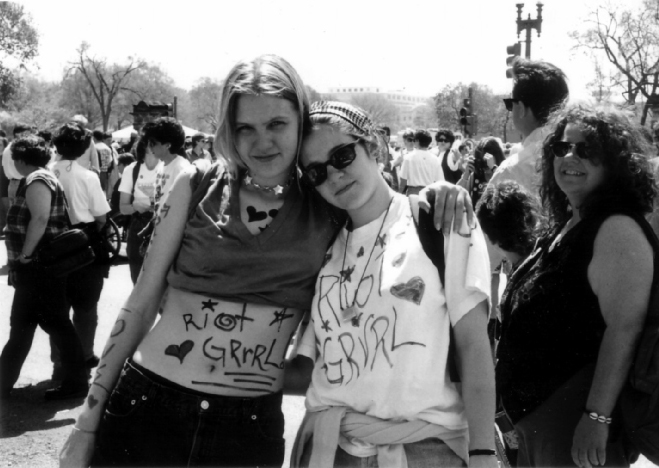Tested against the global political struggles of feminist and anti-colonialist activists, cultural studies scholarship during the 1970s shifted from the subversion of humanist and empiricist dichotomies to the problematization of the limits and possibilities of postmodern critical knowledges themselves. Arguing for analyses that acknowledge the persistence of hierarchical systems and structures—such as neo-imperialism, and the persistent division of labor by sex—as social relations and subjectivities have become more individualized, fragmented, and unstable, we may recognize the year of 1980 as the symbolic moment cultural studies scholars would particularly problematize the categories, oppositions, and dichotomies on which conventional notions of race and sex rely. This article chronicles some of the key debates coming to a head over the course of the late 1970s which would prove fundamental to the development and continued importance of the cultural studies project over the course of the 1980s.
Keyword: feminism
Review of Plastic Matter by Heather Davis (Duke University Press)
Heather Davis’s Plastic Matter sheds light on the implications of plastic’s synthetic universality, inviting readers to reflect critically on their relationship with plastic material and also with matter more generally. She outlines concepts such as plasticity and globalized unlocality, arguing that plastic’s ability to take on various forms contribute to ecological disruptions, biological harms, and social inequalities. Davis highlights how plastic is an everyday, ubiquitous material whose harms are unevenly displaced with regards to race, sex, and class; for example, as waste that is continually dumped on the global South. She further details how the systems designed to handle plastic’s excesses cannot contain it, leading it to swell out and impact more communities, human and beyond. The book critiques dominant narratives of plastic as an ideal of Enlightenment progress, while emphasizing the complexity of plastic and the ambiguity of its role and our relations with it. But Davis also argues that thinking with plastic invites queer relationships with new kin. Davis thus encourages readers to think beyond plastic’s simple ubiquity and to challenge the apparent plasticity of matter.
Review of The Breaks: An Essay by Julietta Singh (Coffee House Press)
Julietta Singh uses an epistolary tradition to meditate on pressing challenges in the contemporary moment. She fixates on a resounding theme: how must we break from existing systems to truly center the most vulnerable in our institutions and epistemologies? In a long-form letter to her six-year-old daughter, Singh reflects on queer life and architecture, family trauma, radicalization, and collective mobilization.
Review of Making Livable Worlds: Afro-Puerto Rican Women Building Environmental Justice by Hilda Lloréns (University of Washington Press)
This review examines Hilda Lloréns’s research into the role that Afro-Puerto Rican women play in advocating for environmental justice and building a sustainable environment in the Puerto Rican archipelago, particularly after the devastation left behind by Hurricanes Irma and Maria in 2017, and the subsequent catastrophic effects of COVID-19 in 2020. Lloréns shows that Afro-Puerto Rican women are able to survive in the face of racial and ecological discriminations and marginalizations, and their survival is emblematic of Puerto Rico’s own survival. The author devotes the entirety of her book to show that as an “ethnographer of home,” as she calls herself, it is essential for people to create livable worlds within which they can survive. Survival in the midst of catastrophic climate change is difficult, Lloréns argues, primarily because Puerto Ricans are often on the receiving end of austerity measures that make their existence tenuous, at best. These austerity measures typically come after a climatic event, and result in limited access to clean water, food, electricity, healthcare, housing, and education, which only serve to exacerbate the desperation that many on the island feel. While this desperation was widespread across the island after the hurricanes in 2017, residents in the southeastern region of the island (predominantly Afro-Puerto Ricans) were even more affected. Lloréns shows how these people used their limited resources to cull an existence out of a seemingly hostile land and create a community that sustained them. Lloréns draws on personal experiences, the experiences of her family, ethnography, anthropology, and interviews to show how vital it is to examine Puerto Rico not as a homogenous space but rather as a heterogeneous one with its unique complexities. And by centering the work and experiences of Black Puerto Ricans, Lloréns gives voice to a group that is largely left on the margins of society, but who demonstrates the importance of building community as a sustaining entity.
Review of Trans Care by Hil Malatino (University of Minnesota Press)
Hil Malatino’s short book Trans Care critiques the heteronormativity of dominant theorizations of care. By taking trans lives seriously, he shows how trans care webs form the basis of trans survival. Malatino deftly weaves together the insights of trans studies and activism with care feminism to explore the archive, cultural production, healthcare, and politics. He broadens feminist and left perspectives on care and brings care from the margins into the center of trans studies. Trans Care is a plea for stronger, more egalitarian, and solidaristic relations of care.
Review of Reproductive Rights as Human Rights: Women of Color and the Fight for Reproductive Justice by Zakiya Luna (New York University Press)
Zakiya Luna’s rich study combines comprehensive discourse analysis of political rhetoric and archival documents with her own ethnographic experiences within the reproductive justice movement. This book is an entry point into this often-marginalized arena, presenting a unique perspective informed by years of participant observation and thorough research which has produced additional projects, attesting to Luna’s expertise in this field of study. As a woman of color, Luna’s work is symbolically significant, and her intersectional lens renders this study broadly applicable to scholars of law, sociology, and gender studies, to policymakers and activists, and, indeed, to all women, who the reproductive justice movement indirectly or directly impacts. In tracing the way that reproductive justice has been framed as a “human right,” Luna addresses the potential for the human rights discourse to deliver on its intrinsic promise to secure freedom and equity for all.
Review of Diagnosing Desire: Biopolitics and Femininity into the Twenty-First Century by Alyson K. Spurgas (The Ohio State University Press)
In Diagnosing Desire, Alyson K. Spurgas examines female sexual dysfunction, specifically low desire in women, and refuses to take anything for granted. One part history of modern sexology and one part feminist critique of the biopolitics engendered by sex research, Spurgas uses anti-racist, queer, disability studies, and trauma-informed theories to argue that the apolitical and atheoretical approach used in much of the modern science of sexuality confines women’s sexual desire to a purely receptive model. Spurgas problematizes essentialist, anti-intersectional, and hetero- and cisnormative frameworks through which women’s sexual desire has become a problem to be solved through self-improvement and by learning to push through feelings of low desire. Instead, Spurgas offers insights into the lives of women with low desire by attending to their experiences with inequality and trauma, and proposes a new understanding of women’s sexuality—and of femininity more generally—based on prudent and critical attention to power.
Political Blackness, British Cinema, and the Queer Politics of Memory
This essay queries “political Blackness” as a coalitional antiracist politics in England in the 1970s and 1980s. Contemporary debates on the relevance of political Blackness in contemporary British race politics often forget significant critiques of the concept articulated by feminist and queer scholars, activists and cultural producers. Through close readings of Isaac Julien and Maureen Blackwood’s The Passion of Remembrance and Hanif Kureishi’s Sammy and Rosie Get Laid, this essay examines cinematic engagements with political Blackness by foregrounding the gender and sexual fault lines through which queers and feminists articulated relational solidarities attentive to difference.
Review of Second World, Second Sex: Socialist Women’s Activism and Global Solidarity during the Cold War by Kristen Ghodsee (Duke University Press)
Kristen Ghodsee’s Second World, Second Sex recovers the historical legacy of women from the Eastern bloc and post-colonial Africa as political activists for women’s rights and diplomats for socialist and non-aligned nations during the UN Decade for Women, 1975-1985. Second World, Second Sex challenges the conventional wisdom of three-wave feminist history by documenting the critical interventions made by women in service of a vision of equality that was always already intersectional, and that refused to separate women’s issues from questions of neo-colonialism, racism, and economic re-distribution. It offers a helpful and instructive reminder of socialist feminism’s rich and global history of organization and action, a history that was created and fought for in large part by alliances of women from non-aligned and socialist countries during the Cold War and whose memory is all too often erased from dominant Western histories of the women’s movement.
Review of Wayward Lives, Beautiful Experiments: Intimate Histories of Social Upheaval by Saidiya Hartman (W. W. Norton & Company)
This review considers how Wayward Lives, Beautiful Experiments: Intimate Histories of Social Upheaval poses a challenge to the reader. The invitation is to stay immersed within the everyday lives of Black women and girls, who navigated the terrains of New York City and Philadelphia at the turn of the twentieth century, without fleeting into spectacle or pathology. One may assume that such is an effortless proposition that is carried simply by the desire to think about Black women. However, Hartman tacitly demonstrates that a tremendous counter-historiography must be amassed to write the stories of those who have been underwritten by the tales of politics, great Black men, shining Black starlets, or the widely pathologized Black female figure. Thus, Wayward Lives weaves together a beautiful narrative of the social upheaval of Black women and girls at the dawning of Northern urban space, and what would later become known as the Black ghetto. At the same time, Hartman exposes the limits of the official record and narratives which relegate the lives of Black women as tertiary, as opposed to an integral political history in its own right.
Response to Lindsey Macdonald’s “We are All Housewives: Universal Basic Income as Wages for Housework”
What types of subjectivities and political actors are emerging around calls for UBI? Lindsey Macdonald’s article, “We Are All Housewives,” eloquently speaks to the concept of universality, while also situating socialist-feminist demands for UBI within specific activist traditions. I pose questions about the distinctions between different socialist arguments for UBI and the political groups that advocate for its implementation: first, what are the differences between autonomist and feminist proposals; and, second, how might we distinguish and evaluate organizations that are fighting for a feminist-socialist UBI?
We are All Housewives: Universal Basic Income as Wages for Housework
This paper proposes to orient contemporary debates over universal basic income (UBI) to broader social theory in the Marxist and Marxist-feminist traditions. Drawing on theories of labor decommodification, market socialism, and social reproduction, as well as more public-facing debates over policy, the purpose of this analysis is to better clarify the stakes a burgeoning left politics might have in pursuing the demand for UBI. Following key justifications put forward by chief proponents of the Wages for Housework movement for pursuing seemingly impractical, impossible, and politically ambiguous demands, I argue that UBI is best treated as a political perspective with both reactionary and revolutionary undercurrents. Urging caution, not dismissal, I refute more conventional economic analysis leading to common refrains against UBI, and suggest possible ways to bend UBI toward more explicitly socialist aims.
Review of Football and Manliness: An Unauthorized Feminist Account of the NFL by Thomas P. Oates (University of Illinois Press)
In ‘Football and Manliness,’ Thomas B. Oates offers a prescient intersectional feminist analysis of the central symbolic place of the National Football League in U.S. culture and politics. In each chapter, Oates provides close readings of various popular media texts, which, despite remaining secondary to the spectacle of televised games, profoundly shape the ideological work the NFL performs in relation to dominant constructions of race, gender, sexuality, and class. These texts include fictionalized cinematic and televised melodramas depicting the internal dynamics of professional football teams; sports media coverage of the NFL draft; self-help books authored by noted NFL coaches; computer-based games, including fantasy league football and Madden NFL; and lastly, the investigative reportage that ignited the NFL concussion scandal. As Oates succinctly posits, “these texts produce a complex but ultimately coherent set of stories about gender, race, and contemporary capitalism” (20).
“A Black Man Replies”: Claude McKay’s Challenge to the British Left
Anne Donlon delves into the history of the British Left after World War I to assert the significance of the Black and feminist interventions of Claude McKay and Sylvia Pankhurst. Donlon centers the publication of “A Black Man Replies,” McKay’s letter to the editor published in Pankhurst’s newspaper The Worker’s Dreadnought, against white supremacist logics mobilized by prominent 1920s leftists that contributed to the reestablishment of policing of and violence against black men. Donlon’s archival discoveries weave together biography, material cultural analysis, and histories of trans-Atlantic activism, and, in the process, reveal the labor of building radical intersectional solidarity that came before and followed the moment of “A Black Man Replies.”
I Can Sell My Body If I Wanna: Riot Grrrl Body Writing and Performing Shameless Feminist Resistance
Leah Perry presents a feminist history of Riot Grrrl and Kathleen Hanna in order to explore the hope and the limits of an individualist revolution in the 1990s. Perry takes on the performance of shamelessness, embodied in Hanna’s songs as well as through bodywriting, sex work, zine production, and other aspects of the riot grrrl movement. Ultimately Perry exposes the position of these performances: they are alternative youth culture for certain subjects which both work against and from within the structures of neoliberalism. Perry concludes that shamelessness might remain a promising space for an urgent anti-racist, feminist politics, if it can work to destabilize power and center women from oppressed groups.


